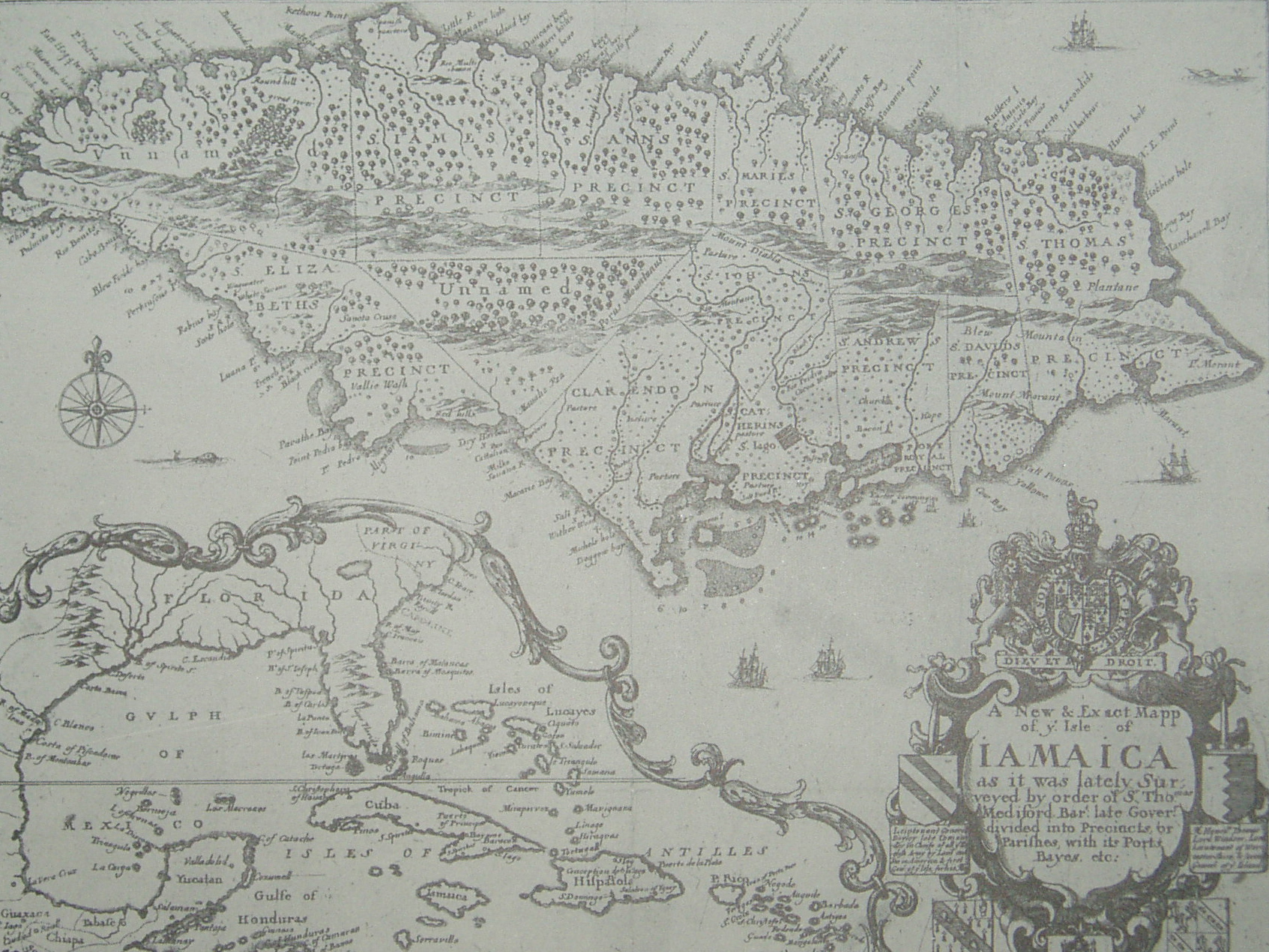|
Anthony Rowse
Anthony Rowse was the first Colonial Governor of Suriname during English suzerainty. Sir Thomas Modyford, 1st Baronet mentions his starting an English settlement on the Suriname River. In 1650 reportedly landed in Suriname with around 300 people. That said as the effort had been initiated by Baron Francis Willoughby it would later be known as Willoughby-Land. Once there Rowse is said to have negotiated with two " Carib kings or princes." References Governors of Suriname English colonization of the Americas {{Suriname-politician-stub ... [...More Info...] [...Related Items...] OR: [Wikipedia] [Google] [Baidu] |
List Of Colonial Governors Of Suriname
This is a list of colonial governors of Suriname, a country in northern South America. It borders French Guiana to the east, Guyana to the west, Brazil to the south, and the Atlantic Ocean to the north. Suriname was first colonized by the British, and captured by the Dutch in 1667, who governed it as Surinam until 1954. The country of Suriname achieved independence from the Kingdom of the Netherlands on 25 November 1975. List of governors Italics indicate ''de facto'' continuation of office See also * Politics of Suriname * President of Suriname * First Lady of Suriname * Vice President of Suriname * List of prime ministers of Suriname This article lists the prime ministers of Suriname from 1949 to 1988. In 1988 the position of Prime Minister of Suriname was abolished and replaced by a Vice President, who chairs the Council of Ministers ex officio. List of prime ministers ;P ... * List of deputy prime ministers of Suriname External links * World Statesmen - Sur ... [...More Info...] [...Related Items...] OR: [Wikipedia] [Google] [Baidu] |
William Byam (colonialist)
William Byam (died 1672) was an English colonist, politician, and agriculturalist who lived during the periods of the English Civil Wars, Interregnum, and Restoration. He was active in English and Barbadian politics, and played a critical role in establishing and governing a short-lived English colony in what is now Suriname. The village of Braamspunt (a corruption of 'Byam's Point') is named after him. Early life, English Civil War, and Barbados William Byam was born in the 1620s to a Somerset family. He was educated at Trinity College, Dublin. Fighting on the side of the Royalists in the English Civil War, he was captured following the fall of Bridgwater to the Roundheads in 1645. Following this defeat he relocated to the Caribbean, like many other Cavaliers at the time. Settling in Barbados, he was described as a "known malignant" by the Roundhead government in London. Barbados had remained neutral in the civil war. However, the execution of Charles I of Englan ... [...More Info...] [...Related Items...] OR: [Wikipedia] [Google] [Baidu] |
Sir Thomas Modyford, 1st Baronet
Colonel Sir Thomas Modyford, 1st Baronet (c. 1620 – 1 September 1679) was a planter of Barbados and Governor of Jamaica from 1664 to 1671. Early life Modyford was the son of a mayor of Exeter with family connections to the Duke of Albemarle. Barbados Modyford emigrated to Barbados as a young man with other family members in 1647, in the opening stages of the English Civil War. He had £1,000 for a down payment on a plantation and £6,000 to commit in the next three years. Modyford soon was dominant in Barbados island politics, rising to be speaker of the House of Assembly in Barbados during the reign of King Charles II, and factor for the Royal Adventurers Trading to Africa, who had a monopoly in the slave trade to the islands. By 1647, Modyford had made a fortune from sugar and slavery. In 1651, Modyford sided with the Cavaliers under Lord Francis Willoughby, 5th Baron Willoughby of Parham, as they defied Oliver Cromwell, but when a force was despatched under the comma ... [...More Info...] [...Related Items...] OR: [Wikipedia] [Google] [Baidu] |
Suriname River
The Suriname River (Dutch: ''Surinamerivier'') is 480 km long and flows through the country Suriname. Its sources are located in the Guiana Highlands on the border between the Wilhelmina Mountains and the Eilerts de Haan Mountains (where it is known as the Gran Rio). The river flows below the reservoir along Brokopondo, Berg en Dal, the migrant communities Klaaskreek and Nieuw-Lombé, Jodensavanne, Carolina, Ornamibo and Domburg, before reaching the capital Paramaribo on the left bank and Meerzorg on the right bank. At Nieuw-Amsterdam it is joined by the Commewijne and immediately thereafter at the sandspit Braamspunt it flows into the Atlantic Ocean. The river has several sets of rapids as well as a few dams, the largest of which is the Afobaka Dam. The river's flow is interrupted by the Brokopondo Reservoir, which therefore divides the river into two sections. The upstream section runs almost entirely through the Sipaliwini district, and the downstream section runs ... [...More Info...] [...Related Items...] OR: [Wikipedia] [Google] [Baidu] |
Francis Willoughby, 5th Baron Willoughby Of Parham
Francis Willoughby, 5th Baron Willoughby of Parham (baptised 1614; died 23 July 1666 O.S., 2 August 1666 N.S.) was an English peer of the House of Lords. He succeeded to the title on 14 October 1617 on the death in infancy of his elder brother Henry Willoughby, 4th Lord Willoughby of Parham. Francis Willoughby was the second son of William Willoughby, 3rd Lord Willoughby of Parham The young and unexpected death of his elder brother Henry made Francis successor to the hereditary peerage and seat in the House of Lords, the upper house of Parliament. Francis Willoughby was an early supporter of the Parliamentarian cause during the English Civil War but later became a Royalist. He twice served as governor of English colonies in the Caribbean. Francis Willoughby died without male heirs of his body and the title passed to his younger brother William Willoughby, 6th Lord Willoughby of Parham, the third son of William Willoughby, 3rd Lord Willoughby of Parham. Background Francis W ... [...More Info...] [...Related Items...] OR: [Wikipedia] [Google] [Baidu] |
Kalina People
The Kalina, also known as the Caribs or mainland Caribs and by several other names, are an indigenous people native to the northern coastal areas of South America. Today, the Kalina live largely in villages on the rivers and coasts of Venezuela, Guyana, Suriname, French Guiana, and Brazil. They speak a Cariban language known as Carib. They may be related to the Island Caribs of the Caribbean, though their languages are unrelated. Name The exonym ''Caribe'' was first recorded by Christopher Columbus. One hypothesis for the origin of ''Carib'' is that it means "brave warrior". Its variants, including the English ''Carib'', were then adopted by other European languages. Early Spanish explorers and administrators used the terms ''Arawak'' and ''Caribs'' to distinguish the peoples of the Caribbean, with ''Carib'' reserved for indigenous groups that they considered hostile and ''Arawak'' for groups that they considered friendly. The Kalina call themselves ''Kalina'' or ''Karìna'' , ... [...More Info...] [...Related Items...] OR: [Wikipedia] [Google] [Baidu] |
Governors Of Suriname
A governor is an administrative leader and head of a polity or political region, ranking under the head of state and in some cases, such as governors-general, as the head of state's official representative. Depending on the type of political region or polity, a ''governor'' may be either appointed or elected, and the governor's powers can vary significantly, depending on the public laws in place locally. The adjective pertaining to a governor is gubernatorial, from the Latin root ''gubernare''. Ancient empires Pre-Roman empires Though the legal and administrative framework of provinces, each administrated by a governor, was created by the Romans, the term ''governor'' has been a convenient term for historians to describe similar systems in antiquity. Indeed, many regions of the pre-Roman antiquity were ultimately replaced by Roman 'standardized' provincial governments after their conquest by Rome. Plato used the metaphor of turning the Ship of State with a rudder; the Latin w ... [...More Info...] [...Related Items...] OR: [Wikipedia] [Google] [Baidu] |

.jpg)
